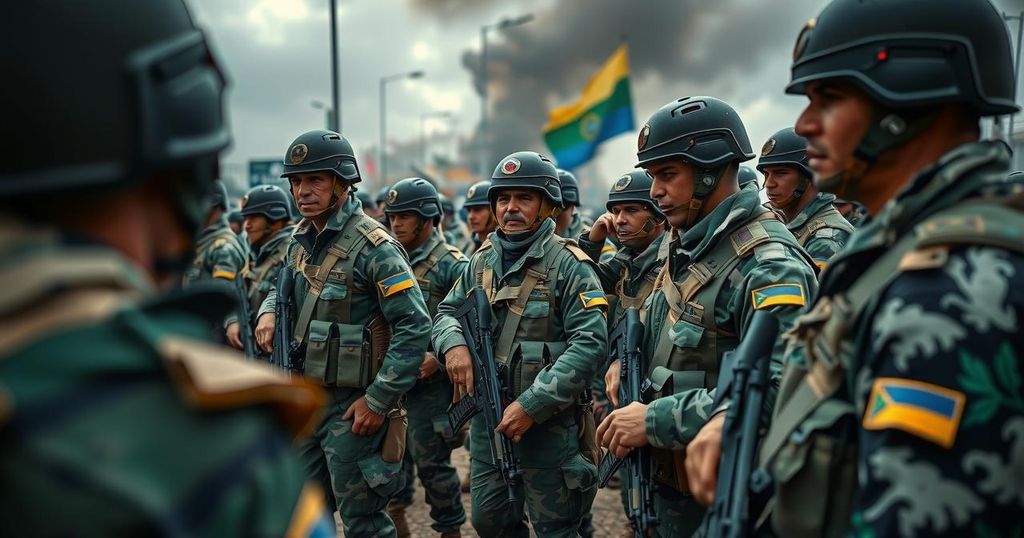Bolivian Military Personnel Reportedly Held Hostage Amid Protests
The Bolivian government claims over 200 soldiers are being held hostage by Evo Morales supporters amid protests against his potential arrest. The military has accused armed groups of taking control of barracks, while some demonstrators contest these claims. The situation reflects significant tension in Bolivian politics and raises questions about military preparedness and state support for their operations.
The Bolivian government has reported that over 200 soldiers are being “held hostage” by supporters of former President Evo Morales amid ongoing road blockades that have persisted for more than three weeks. As tensions mount, demonstrators in Chapare, a region politically aligned with Morales, have reportedly taken control of military barracks, leading to accusations of “kidnapping” military personnel. Videos show soldiers surrounded by protesters, highlighting the escalating situation as allegations of armed groups taking over the Cacique Maraza Regiment arise. The military statements confirm that barracks were assaulted, with soldiers unable to leave freely amidst ongoing protests demanding the removal of Morales’s arrest threats on charges of statutory rape. The notion of the soldiers being hostages has been contested. Vicente Choque, leader of the Indigenous federations in Chapare, dismisses the government’s allegations, stating, “There is not a single hostage; this talk of hostages is the government exaggerating or lying.” Despite his claims, reports indicate that around 3,000 protesters are maintaining a presence around the military facilities, insisting they came to address grievances regarding the army’s actions. In the wake of these events, concerns have been raised regarding the military’s preparedness and operational support. Retired Army Officer Omar Duran criticized the military for being unprepared, highlighting a broad lack of intelligence and the inadequacy of equipment. Duran emphasized the risk faced by military personnel, suggesting that they fear abandonment by the government should they resort to force against the protesting groups. As the situation remains dynamic, Deputy Minister Juan Villca announced intentions for a thorough investigation into how protesters managed to overpower military barracks and take soldiers captive. This incident raises significant questions regarding military-civil relations and the political climate surrounding former President Morales, who remains a polarizing figure in Bolivian politics ahead of upcoming elections.
The tensions in Bolivia stem from the political legacy of Evo Morales who served as President from 2006 to 2019. His administration was marked by significant social changes and polarization in the country. Morales’s recent return from exile has reignited political activism, particularly among his base in regions like Chapare. The current situation reflects ongoing civil unrest in Bolivia, as demonstrators aim to prevent his arrest related to serious charges, illustrating the volatile intersection of military authority, public protest, and political allegiance in the nation. The unfolding events present a precarious challenge to governmental stability and military governance amidst an intricate political landscape.
In summary, the situation regarding the “hostage” soldiers in Bolivia illustrates a multifaceted crisis involving civil unrest, political allegiance, and military challenges. While the government accuses protestors of holding soldiers captive, dissenting voices claim otherwise. The military’s preparedness and response strategies are now under scrutiny as investigations commence. The implications of this incident could significantly affect the civil-military relationship in Bolivia as the country continues to navigate its tumultuous political atmosphere.
Original Source: www.kgwn.tv




Post Comment